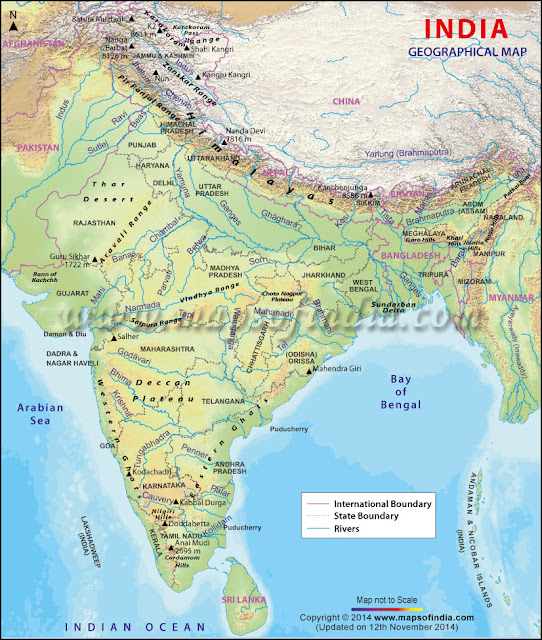Ashoka Inscription
Ashoka Inscription (The Edicts Of Ashoka)
Ashoka Inscription (Rock Edicts)
James Prinsep, a British antiquary and colonial administrator was the first person to decipher Ashoka’s edicts. These Ashoka’s inscriptions are the first tangible evidence of Buddhism.
They were kept in public places and along trade routes so that maximum number of people would read them. More than religious discourses, they talk about the moral duties of the people, how to conduct life, Ashoka’s desire to be a good and benevolent ruler, and about Ashoka’s work towards this end.
Ashoka inscriptions can be classified into three:
- Pillar edicts,
- Major rock edicts and
- Minor rock edicts.
Pillar Edicts
- There are seven pillar edicts.
- Two types of stones are used: spotted white sandstone (from Mathura) and buff coloured sandstone and quartzite (from Amaravati).
- All the pillars are monoliths (carved out of from stone).
- They have been found from different places like Kandahar (Afghanistan), Khyber Pakhtunkhwa (Pakistan), Delhi, Vaishali and Champaran (Bihar), Sarnath and Allahabad (Uttar Pradesh), Amaravati (Andhra Pradesh), and Sanchi (Madhya Pradesh).
- Fragments of the same edict are found in different places.
- Many pillars are as high as 50 feet high and weigh as much as 50 tons.
- The pillars depict animals such as elephants and lions and wheels and lotuses which are all significant symbols in Buddhism.
The following table gives the Edict number and what it talks about:
| Edict | Ashoka Inscription Details |
| Pillar Edict I | Ashoka’s principle of protecting his people. |
| Pillar Edict II | Dhamma |
| Pillar Edict III | Avoiding practices of cruelty, sin, harshness, pride and anger among his subjects. |
| Pillar Edict IV | Responsibilities of the Rajukas. |
| Pillar Edict V | List of animals and birds that should not be killed on certain days. Another list which mentions animals that should never be killed. |
| Pillar Edict VI | Dhamma policy of the State. |
| Pillar Edict VII | Ashoka’s work for fulfilling Dhamma. Tolerance for all sects. |
Ashoka’s Major Rock Edicts
Major Rock Edicts: There are 14 major rock edicts:
| Edict | Ashoka Inscription Details |
| Major Rock Edict I | Prohibits animal slaughter and bans festive gathering. |
| Major Rock Edict II | Care for man and animals. Mentions the Pandyas, Satyapuras and Keralaputras of South India. |
| Major Rock Edict III | Generosity to Brahmins. About Yuktas, Pradeshikas and Rajukas who would go every five years to different parts of his empire to spread Dhamma. |
| Major Rock Edict IV | Dhammaghosha (sound of Dhamma/righteousness) over Bherighosha (sound of war). |
| Major Rock Edict V | About Dhammamahamatras. Talks about treating slaves right. |
| Major Rock Edict VI | King’s desire to know about his people’s conditions. About welfare measures. |
| Major Rock Edict VII | Tolerance for all religions. |
| Major Rock Edict VIII | Ashoka’s first visit to Bodh Gaya and the Bodhi tree (his first Dhamma Yatra). |
| Major Rock Edict IX | Condemns popular ceremonies. |
| Major Rock Edict X | Disapproves of the individual’s desire for fame and glory and stresses on Dhamma. |
| Major Rock Edict XI | Elaborates on Dhamma. |
| Major Rock Edict XII | Tolerance for all religions and sects. |
| Major Rock Edict XIII | Mentions victory over Kalinga. Mentions Ashoka’s Dhamma victory over Greek Kings Antiochus of Syria (Amtiyoko), Ptolemy of Egypt (Turamaye), Magas of Cyrene (Maka), Antigonus of Macedon (Amtikini), Alexander of Epirus (Alikasudaro). Also mentions Pandyas, Cholas, etc. |
| Major Rock Edict XIV | Engraving of inscriptions installed in various parts of the country. |
Minor Rock Edicts
- Minor rock edicts are found on 15 rocks across the country and in Afghanistan also.
- Ashoka uses his name only in four of these places namely:
- Maski,
- Brahmagiri (Karnataka),
- Gujjara (MP) and
- Nettur (AP).
Languages used in Ashoka Inscription
- In the eastern part of the empire, the Magadhi language in Brahmi script is used. (Magadhi is the dialect of Prakrit found in Magadha).
- In western parts of the Mauryan Empire, Prakrit in kharoshti script is used.
- Major Rock Edict XIII contains an extract in Greek and Aramaic as well.
Ashoka’s Inscription Excerpt
Major Rock Edict VI
Beloved of the Gods speaks thus: Twelve years after my coronation I started to have Dhamma edicts written for the welfare and happiness of the people, and so that not transgressing them they might grow in the Dhamma. Thinking: “How can the welfare and happiness of the people be secured?” I give my attention to my relatives, to those dwelling far, so I can lead them to happiness and then I act accordingly. I do the same for all groups. I have honoured all religions with various honours. But I consider it best to meet with people personally.

Comments
Post a Comment